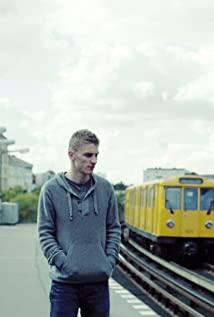At the beginning of the 1937 exhibition, the Nazi tour criticized "modernism" while promoting "German nationalism", to the post-war professor of the East German Academy of Fine Arts criticizing Western capitalist art for only pursuing "self" and ignoring "people's nature". Donasma hopes to show the audience how different art forms are judged under different ideological standards. In fact, almost every political camp with a standpoint is satirized in the film: Nazis are not to be mentioned; East Germany has completely subdued the artist's ego with the people's nature, and the expression of art is only social realism; The Western camp's appeasement to the Nazis was spoken through the mouth of the Soviet major, so Nazi doctors could go to East Germany to start a new life with confidence.
By this point, the director has vaguely conveyed the notion that "every political position is questionable", until Professor Durft burns the bipartisan campaign posters in class (in fact, this is also a question of democratic politics) , asking students to find real "freedom and truth" through art, and the idea that the director wants to convey to the audience is really expressed - that is, "no master", or we can regard it as a kind of "no positionalism". In addition, "pursuing authenticity through art" is a complement to non-positionalism. These two points form the two key words of "Work Without Owner": no-positionism and art.
The first key word is "no positionalism".
In the film the director does not seek to forcibly judge anyone, and any position is dubious. Therefore, each ideological camp in the film has its own problems. At the end of the interview, reporters should avoid using a background that may cause controversy. Even Nazi doctors can finally escape sanctions (but not escape conscience and panic). In this era of political polarization and political correctness, standpoint has become an invisible shackle locked in people's hearts. And the non-positionalism of "No Master's Work" is based on the reflection of real politics - every position and the ideology behind it is questionable.
Another key word is "(no position) art".
Donasma first proposed a kind of non-positionalism, but we know that positions often give people the value of actions, and there is something behind the value that we assume to be "true". So how should people pursue "truth" after no position? The answer given by Donasma is "art without position". Therefore, Durft's professor burned the bipartisan campaign posters in the classroom, shouted to the students "liberate yourself to liberate others", and hoped that Kurt's works could show his past in his later guidance to Kurt. Life course, show those real things and not just cater to modern art in form, and even take off the hat that he never took off before leaving, show Kurt the fire-burned symbol of his past life course. Scalp Scars (of course, I also suspect he may have inspired every student by telling a story and then taking off his hat…). It can be said that Donasma tries to convey a style of thinking that does not look at the position and pursues the authenticity, which I call here "indifference in position, enthusiasm in reality".
This kind of pursuit of authenticity and reflection on position can be said to be very high-dimensional idealism, and it is also Donasma's reflection on off-screen realpolitik and its alternative propositions. But for the film itself, the conflict of drama and the innate pursuit of justice of human beings have to be compromised and shelved. It is believed that many viewers were resentful because the Nazi doctor finally escaped sanctions - until the end of the film, they fantasized that the Nazi doctor would get the punishment they deserved, but as the film progressed to the end, the audience's fantasy gradually shattered. It is impossible for the director to have not imagined such an ending, but apparently the director finally chose the most stylized expression to carry out "No Master" to the end. At the same time, this also led to serious problems - justice has not been paid, and contradictions are not like many The movie is released at the end (such as "Burning"), if the audience can't understand or accept the director's "ownerless" concept, they will naturally find the ending unacceptable, and even feel that the whole film is very hazy and obscure. Coupled with some metaphors added in the film (such as listening to bus horns, nudity), it is easy for some viewers to struggle with these details after watching the film, but it may blur the "no position" and "pursuing authenticity through art" that the director hopes to convey. "Focus.
Overall, Donasma's ideas of "no stance" and "pursuing authenticity through art" are valuable, but the film's plot is also hampered. 3.8 points.
View more about Never Look Away reviews











